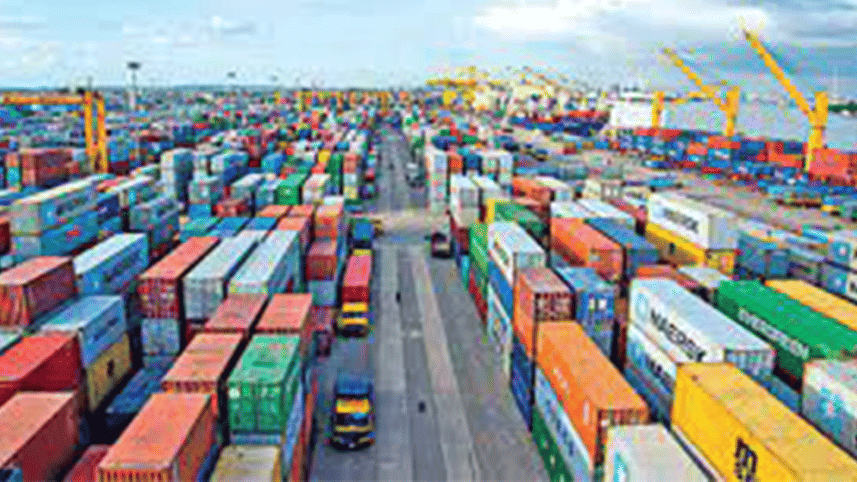Aiding re-export of returned goods: A legal perspective

Keeping pace with the increasing trend of the global trade and economy, Bangladesh's trade policy is evolving. The trade policy of the country is undergoing necessary changes to meet the demand of the time and to help the country survive in the competitive global trading system. Additionally, the world economy is currently combating the prolonged COVID-19 pandemic and the governments are struggling to keep import and export in order by taking various measures. In the same vein, the government of Bangladesh is taking measures to provide aid in the import and export trade scheme. As part of the continuous efforts, on 31 August 2021, by referring the provisions of the section 21(b) of the Customs Act of 1969, the National Board of Revenue (NBR), published a Special Order addressing the matters involving re-export of returned goods signed by a Second Secretary (Customs: Export and Bond). This is, in our view, an important step ahead for protecting the interests of the country's export sector.
Repealing two previously issued Orders of NBR dated 05 June 2007 and 16 March 2017, this latest Special Order has provided some aid to ensure smooth clearance of returned export goods and their re-export.This is a timely initiative amid this pandemic since many exported goods are returning to Bangladesh due to the exporters' failure to meet the deadline because of lockdowns; the reason of the closure of stores; not clearing of the exported goods on time by the consignors; missing seasons/schedules; or for goods shipped to importers who became bankrupt during this pandemic.
The customs authority has taken this decision to soften the customs regulations on re-exporting products, allowing exporters to re-export returned goods within one year of clearance of the goods, in line with the terms of the Export Policy 2018-21. Under the said Export Policy, 're-export' means "the export of an imported product within a specific period of time with a value addition of at least 10% to the imported price by changing either quality or shape or both of the products by means of local reprocessing". It seems that the Special Order provides facility to re-export all returned goods as no specification of the expression "returned goods" has been provided therein, although the Export Policy discusses the re-export of certain specified goods only. To enjoy the facility, the exporters are required to comply with certain procedural formalities upon procuring some documentation, as required by the Custom Authority through the Special Order. This facility and the relaxation of restriction will encourage the exporters to re-export the products to the same or new consignees instead of selling them in the local market. In case of failure to re-export, the returned goods are allowed to be sold in the local market on payment of taxes and duties, as per the terms of the Special Order read with the Export Policy 2018-2021 [para. 3.4.8(2)]. On the other hand, this Order of NBR retains the power to take legal steps to realise the custom duties and taxes in case the exporter fails to pay the duties as per the terms and conditions of the Bank Guarantee or the Undertaking to be provided by the exporters regarding the export.
Although the Special Order has given the permission to re-export, it neither provided any clarification as to whether the exporters need to submit any application to that effect nor has it mentioned anything with regard to the custody issue of the goods as envisaged by section 138 of the Customs Act, 1969. Section 138 of the said Act provides that where any goods, which are generally treated as "frustrated cargo", are brought into a customs-station of the country by reason of inadvertence, misdirection or untraceability of the consignee, the Commissioner of Customs may allow the export of such goods without payment of any duties (whether of import or export) chargeable thereon. For getting this charge free re-export facility, there are several conditions: the exporter will file an application before the concerned Commissioner of Custom; the goods must remain and be re-exported under the custody of an officer of Customs: and all expenses attending to the custody shall be borne by the applicant. This section further provides that for the goods, other than the frustrated cargo, to allow re-exportation without payment of any duties, the Commissioner of Customs will take prior approval of the NBR. Similar provisions are also present in section 135 of the said Act about the goods (after having cleared from customs-station any conveyance without having discharged returns to Bangladesh). But NBR's Special Order has not said anything about custody and the procedure to obtain duties free re-export facility.
The Order provides an option for an exporter to make application before the NBR under "exceptional circumstances". Though the expression "exceptional circumstances" has not been defined in this Order, we think the exporters may file an application to the NBR to clear the confusion over the provisions of sections 135 and 138. We recommend that the provisions regarding the custody of returned goods under the Commissioner of Custom need to be further addressed by the policy makers and, if necessary, the provisions of section 138 may be amended to accommodate the scope of re-export of goods "by changing the quality or shape or both of the products by means of local reprocessing" as provided by the definition of "re-export" in the Export Policy 2018-2021.
The writers are Head of the Chambers of MCLaw Services and Advocate of Supreme Court of Bangladesh, respectively.



 For all latest news, follow The Daily Star's Google News channel.
For all latest news, follow The Daily Star's Google News channel.
Comments